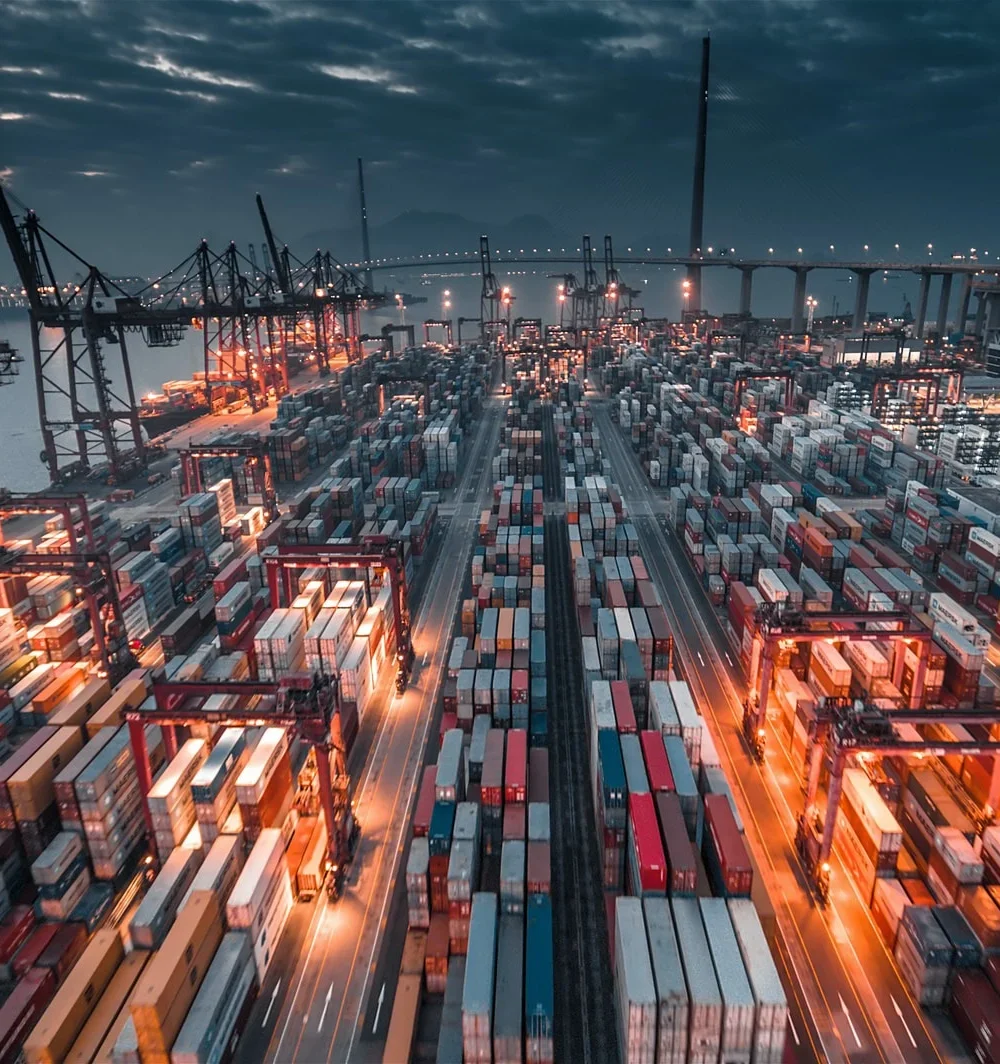In the highly
competitive and dynamic metals industry, effective logistics strategies are
crucial for ensuring operational efficiency, reducing costs, and meeting
customer demands. The logistics challenges in this sector are unique, given the
heavy weight, bulk, and specific handling requirements of metals. Platforms
like MetaMetalX are at the forefront of providing innovative solutions that
streamline logistics and optimise supply chain operations. In this article, we
explore key logistics strategies that can drive success in the metals industry.
The Importance of Effective
Logistics in the Metals Industry
Logistics in
the metals industry encompasses the planning, execution, and management of the movement
and storage of raw materials, semi-finished products, and finished goods. Given
the complexities of global supply chains, effective logistics is essential for:
Reducing Costs:
Streamlined logistics minimise transportation, storage, and handling expenses.
Improving Efficiency:
Efficient processes ensure timely deliveries and reduce delays.
Enhancing Customer Satisfaction:
Reliable logistics operations build trust and loyalty among customers.
Maintaining Quality:
Proper handling and storage prevent damage and ensure the quality of
metals.
Key Logistics Challenges in
the Metals Industry
The metals
industry faces several logistical challenges that must be addressed to ensure
smooth operations:
Weight and Bulk:
Metals are heavy and require specialised equipment for transportation and
handling.
Complex Supply Chains:
Global sourcing and distribution involve multiple stakeholders and
touchpoints.
Regulatory Compliance:
Adhering to international trade and environmental regulations adds
complexity.
Price Volatility:
Fluctuations in metal prices impact inventory and logistics planning.
Sustainability Goals:
Reducing carbon emissions and adopting eco-friendly practices are critical
priorities.
Effective Logistics
Strategies for the Metals Industry
1. Integrated Supply
Chain Management
An integrated
supply chain approach aligns all stakeholders and processes, from procurement
to final delivery. This strategy ensures better coordination, visibility, and
efficiency.
Real-Time Data Sharing:
Platforms like MetaMetalX enable real-time sharing of inventory,
transportation, and demand data, improving decision-making.
Collaborative Planning:
Working closely with suppliers, distributors, and customers fosters
alignment and reduces inefficiencies.
End-to-End Visibility:
Advanced technologies such as blockchain and IoT provide transparency
across the supply chain, ensuring traceability and accountability.
2. Optimised
Transportation Management
Transportation
is a significant component of logistics costs in the metals industry.
Optimising transportation can lead to substantial savings and improved
efficiency.
Route Optimisation:
AI-powered tools identify the most efficient routes, reducing fuel
consumption and delivery times.
Multi-Modal Transportation:
Combining different transportation modes, such as road, rail, and sea,
balances cost and speed.
Fleet Management:
Regular maintenance and real-time tracking of vehicles ensure reliability
and minimise downtime.
3. Warehouse
Automation
Automating
warehouse operations enhances productivity, reduces errors, and improves
inventory management.
Robotic Systems:
Automated guided vehicles (AGVs) and robotic arms handle heavy metals
safely and efficiently.
Smart Shelving:
IoT-enabled shelving systems optimise storage space and facilitate quick
access to inventory.
Inventory Tracking:
Barcode scanners and RFID technology provide accurate, real-time inventory
data.
4. Adopting
Digital Technologies
Digital
transformation is reshaping logistics in the metals industry, offering tools
and insights that drive efficiency and innovation.
Blockchain Technology:
Blockchain ensures secure, transparent, and tamper-proof records of
transactions and shipments.
Predictive Analytics:
AI-driven analytics forecast demand, optimise inventory levels, and
anticipate potential disruptions.
IoT Integration:
IoT sensors monitor the condition and location of shipments, ensuring
timely and safe deliveries.
5.
Sustainability and Green Logistics
Sustainability
is becoming a critical focus for the metals industry. Implementing green
logistics practices reduces environmental impact and aligns with regulatory and
consumer expectations.
Energy-Efficient Transportation:
Using electric or hybrid vehicles reduces fuel consumption and emissions.
Recycling and Re-Use:
Incorporating recycled materials into the supply chain supports circular
economy goals.
Carbon Footprint Monitoring:
Tracking and reporting carbon emissions helps businesses identify areas
for improvement.
6. Risk
Management and Contingency Planning
The metals
industry’s global nature exposes it to risks such as supply chain disruptions,
geopolitical tensions, and natural disasters. Effective risk management
strategies ensure business continuity.
Diversified Supply Chains:
Sourcing from multiple suppliers and regions reduces dependency and
mitigates risks.
Contingency Plans:
Developing alternative routes, suppliers, and inventory buffers prepares
businesses for unexpected disruptions.
Real-Time Monitoring:
Digital platforms provide real-time insights into supply chain
performance, enabling quick responses to issues.
7.
Customer-Centric Logistics
Meeting
customer expectations is crucial for success in the metals industry. A
customer-centric approach ensures that logistics operations align with client
needs.
Customised Delivery Options:
Offering flexible delivery schedules and methods enhances customer
satisfaction.
Transparent Communication:
Keeping customers informed about order status and delivery timelines
builds trust.
Value-Added Services:
Providing additional services such as packaging, labelling, and quality
assurance strengthens relationships.
The Role of MetaMetalX in
Transforming Logistics
MetaMetalX is
leading the way in revolutionising logistics for the metals industry by
leveraging advanced technologies and innovative solutions. Here’s how the
platform supports businesses:
Real-Time Insights:
MetaMetalX provides users with real-time data on inventory,
transportation, and market trends, enabling informed decision-making.
Blockchain Integration:
The platform ensures transparency and security through blockchain-powered
traceability and tamper-proof records.
AI-Driven Tools:
Predictive analytics and AI-powered solutions optimise supply chain
operations and forecast demand accurately.
Sustainability Support:
MetaMetalX promotes green logistics practices by tracking carbon emissions
and facilitating the use of recycled materials.
Global Connectivity:
The platform connects stakeholders across the globe, fostering
collaboration and expanding market opportunities.
The Future of Logistics in
the Metals Industry
As the metals
industry continues to evolve, logistics strategies will become increasingly
reliant on digital transformation and sustainability initiatives. Key trends to
watch include:
Autonomous Vehicles:
The adoption of driverless trucks and drones will revolutionise
transportation, improving efficiency and safety.
Advanced Robotics:
Robotic technologies will further automate warehouse operations, reducing
costs and errors.
Circular Economy Integration:
Logistics will play a central role in supporting circular economy
practices by facilitating the recycling and re-use of materials.
AI and Machine Learning:
These technologies will drive predictive analytics, enabling proactive
decision-making and risk management.
Conclusion
Effective
logistics strategies are essential for navigating the complexities of the
metals industry and achieving long-term success. By adopting integrated supply
chain management, leveraging digital technologies, and prioritising
sustainability, businesses can optimise their operations and meet the demands
of a competitive market.
Platforms like
MetaMetalX are at the forefront of this transformation, providing innovative
solutions that empower stakeholders to overcome logistical challenges and
unlock new opportunities. As the industry continues to advance, embracing these
strategies will be key to staying ahead in the rapidly evolving landscape of
metals logistics.
Effective Logistics Strategies for the Metals Industry
0
Comments
Likes
Clear Filters





